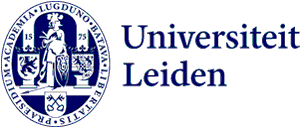Introducing: Fadly Rahman
Fadly Rahman recently joined the Institute for History as a PhD candidate within the NWO-funded project 'Epistemic actors. The role of Indonesians in the making of knowledge in the colonial era’ under the supervision of Fenneke Sysling and Jos Gommans. Below, he introduces himself.
I serve as a lecturer in the Department of History and Philology at Padjadjaran University, Indonesia. Since my undergraduate history studies at Padjadjaran University, I have been passionate about microhistory, which inspired me to pursue the study of food history. My initial historiographical endeavor for my undergraduate thesis was Rijsttafel: Food Culture in Java during the Colonial Period 1870–1942. Subsequently, I expanded my research on food history for my master's degree at Gadjah Mada University, Indonesia, where I focused my thesis on Indonesian Food History in a Global History Perspective. Both of these works have been published as books in Indonesia, establishing my reputation as a food historian.

During my academic journey in food history, I frequently explored the world of plants, both in literature and in nature. My interest then broadened to the environment and botany. I truly developed a passion for plants. I sensed a historical enigma that historians had limited engagement with in the history of science, particularly when discussing plants as objects of science, politics, and economics (if only plants could talk). Through my exploration of plants, I reflected on various things in my works, such as the politics of knowledge behind the exploitation of spices during the VOC era, coffee cultivation and human exploitation in the colonies, botanical studies after the eruption of Krakatoa, and the narrative of the cassava inoculation technique by a Javanese farmer Mukibat, which served as a model for global cassava agriculture. I pondered the relationship between plants and human history, which indeed needed to be voiced from a micro perspective.
When I first came across the PhD Grant Epistemic Actors vacancy, it was time for me to sow the seeds of ideas and knowledge I had been developing for several years. My proposal examined the role of the mantri at the Plantentuin Buitenzorg in assisting European botanists in the area of botanical research. After going through the interview and being selected for this PhD position, ‘the voices’ of mantris and the indigenous, who had been lost within the grand historical narrative of Europeans' obsession with establishing their plant kingdoms at Buitenzorg, seemed to be calling out. Their voices needed to be heard.
I was born in Bogor, where the Plantentuin Buitenzorg, now known as the Bogor Botanical Gardens, is located. Engaging in this project represents my effort to reestablish the connection between the histories of Bogor and Leiden, which are intertwined through colonial botanical endeavors, yet much of the knowledge legacy has been diminished since the postcolonial period. I feel fortunate to have the opportunity to study and live in Leiden, home to the Hortus Botanicus and Naturalis, both of which contain vital botanical archives that are crucial to my research.
On June 20, 2025, Fenneke Sysling visited Bandung. We met and talked over a Sundanese lunch, then walked together in the lush trees of the Babakan Siliwangi city forest. That first meeting brought me to Leiden. Alongside her and Marleen Reichgelt (postdoctoral researcher), I will be involved in the Epistemic Actors project team. In addition to Fenneke, I am also supervised by Prof. Dr. J.J.L. Gommans in this PhD study.
For those interested in getting to know me, I can often be found around the Huizinga Building and Universitaire Bibliotheken Leiden (UBL).
